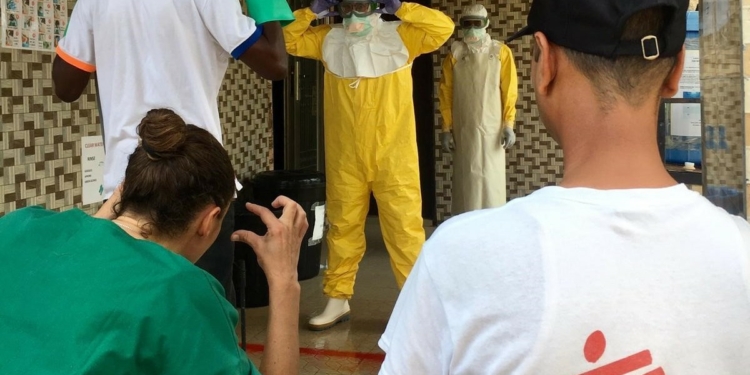- The Nigeria Centre for Disease Control and Prevention (NCDC) reported 20 deaths from Lassa fever across 16 states within seven days
- During week nine of 2024, confirmed Lassa fever cases increased, reaching 109 cases, with a case fatality rate of 18.8 percent
The Nigeria Centre for Disease Control and Prevention (NCDC) has disclosed that within seven days, the country recorded 20 deaths attributed to Lassa fever across 16 states.
According to the NCDC’s official website, the reported cases occurred between February 26 and March 3.
The agency highlighted an increase in confirmed cases during week nine of 2024, rising from 96 in the preceding week.
Lassa fever is a severe viral illness transmitted to humans through contact with contaminated food, household items, or infected rodents. Its symptoms encompass fever, headache, sore throat, weakness, cough, nausea, vomiting, diarrhoea, muscle pains, chest pain, and in severe instances, unexplained bleeding from various bodily openings.
Despite concerted efforts, the country continues to grapple with new cases and fatalities, underscoring the persistent threat posed by Lassa fever. The NCDC’s report revealed that 109 cases were recorded within the week under review.
Cumulatively, from week one to nine of 2024, Nigeria has documented 682 confirmed cases and 128 deaths, resulting in a case fatality rate (CFR) of 18.8 percent, surpassing the CFR recorded for the same period in 2023.
Furthermore, the report noted an increase in suspected cases compared to the corresponding period 2023, with eight healthcare workers affected during week nine.
The affected states include Ondo, Bauchi, Edo, Benue, Ebonyi, Kogi, Kaduna, Taraba, Enugu, Delta, Jigawa, Adamawa, Anambra, Rivers, Ogun, and Oyo.
Highlighting the distribution of cases, the report revealed that 62 percent of confirmed cases emanated from Ondo, Edo, and Bauchi, while the remaining 38 percent originated from 24 states with confirmed cases.
Moreover, the age group most affected was between 31 and 40, with a slight predominance of male cases over female cases.
The National Lassa Fever multi-partner, multi-sectoral Incident Management System has been activated to coordinate response efforts across all levels through the Emergency Operations Centre (EOC) to address the escalating situation.










Discussion about this post